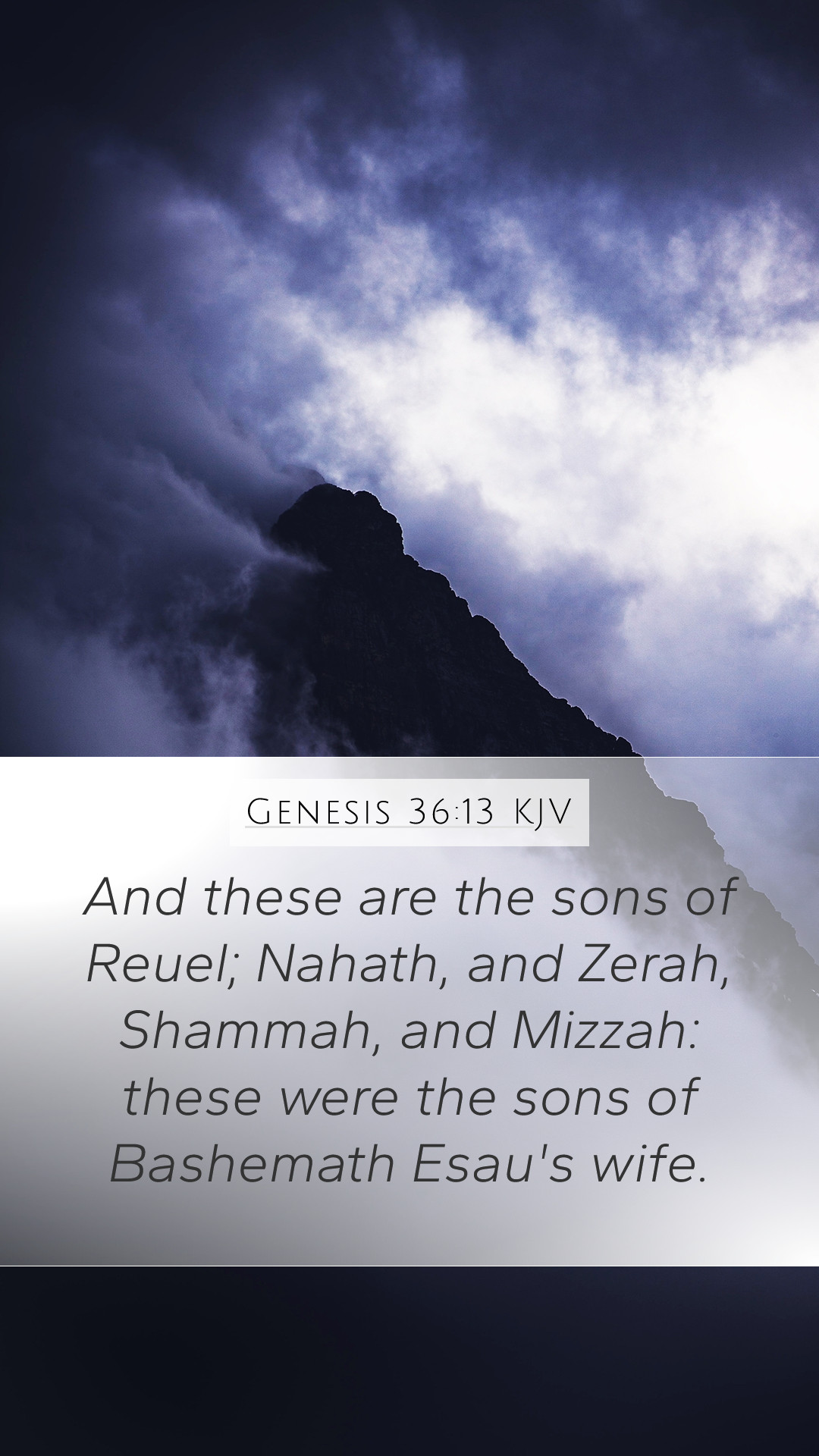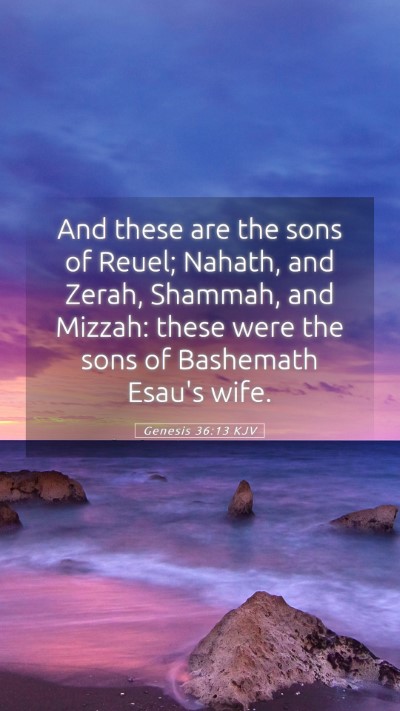Understanding Genesis 36:13
"And these are the names of the chief of the sons of Esau: these were their dukes, according to their palaces in the land of Seir." (Genesis 36:13)
Bible Verse Meanings
The verse provides insight into the lineage and leadership structure of Esau’s descendants, who are referred to as "dukes." It emphasizes the establishment of power among Esau's lineage in the land of Seir.
Bible Verse Interpretations
Esau, being the elder brother of Jacob, had a prominent role in biblical history. This verse outlines the important positions held by Esau’s descendants, possibly to signify God's providence in leading and organizing nations. The term "dukes" indicates a hereditary nobility, framing Esau's family as influential in their region.
Bible Verse Understanding
This verse can be interpreted as part of the broader biblical narrative that showcases how God's plans unfold through family lines. The key here is acknowledging the historical context of Esau's descendants as they form tribal leaders in Edom.
Bible Verse Explanations
The explanation of the verse illustrates a transition from the patriarchs to the establishment of nations in the biblical context. It serves as a bridge between the personal history of Jacob and Esau and the political history of their descendants.
Insights from Commentaries
-
Matthew Henry:
Matthew Henry emphasizes the importance of these leaders and how Esau's family was powerful in their domain. His commentary indicates that the structure of leadership among Esau's descendants is paramount to understanding the future interactions between Israel and Edom.
-
Albert Barnes:
Albert Barnes highlights the names and significance of each duke, noting the fulfillment of the promise given to Abraham concerning the nations that would arise from his descendants. The emphasis is on the importance of recognizing these family ties that connect various tribes.
-
Adam Clarke:
Adam Clarke provides a thorough analysis of the locations and roles of the dukes mentioned, suggesting that they represent both authority and the political landscape of the time. Clarke’s commentary reflects on how this lineage connects to the wider narrative of the Bible.
Historical Context of Genesis 36:13
To fully grasp the implications of this verse, it is crucial to understand the historical backdrop. Genesis 36 discusses the inheritance of Esau, who settled in Seir, and his considerable influence over the region.
Cross References
- Genesis 25:30-34 - The story of Esau selling his birthright to Jacob.
- Genesis 27 - Esau's loss of the blessing meant for him.
- Deuteronomy 2:5 - Instructions concerning the descendants of Esau, indicating their right to the land of Seir.
Application of Genesis 36:13
This verse challenges readers to reflect on their own family histories and how lineage and heritage shape their identities. Understanding the significance of leaders in one’s own lineage can provide insights into personal destiny and societal roles.
Incorporating Insights into Bible Study
For those engaged in bible study groups or online bible study, understanding Genesis 36:13 can foster deeper discussions about the implications of family, leadership, and God's providence in shaping nations.
Conclusion
Genesis 36:13 serves as a critical component for those wishing to conduct comprehensive bible study lessons and engages deeper themes of heritage and divine sovereignty. By examining this verse, one can delve into significant narratives that impact the overall understanding of the Scriptures.


